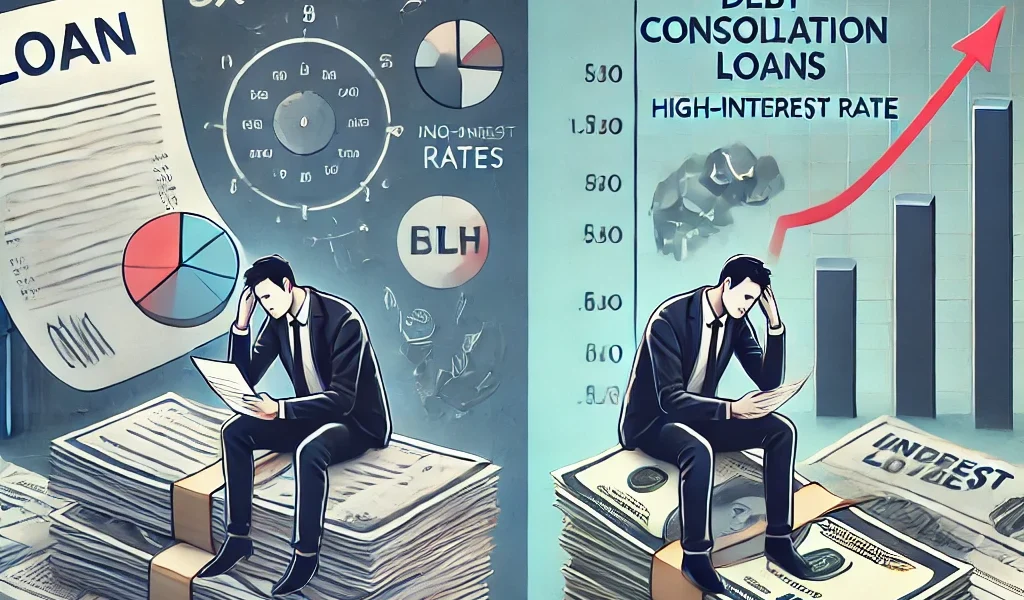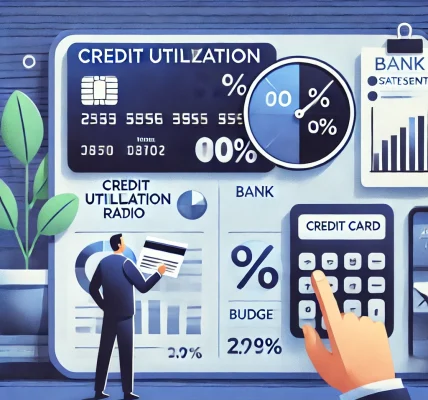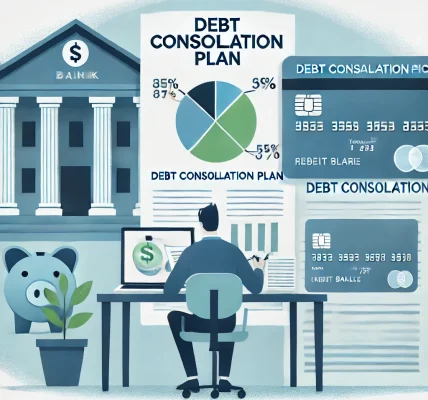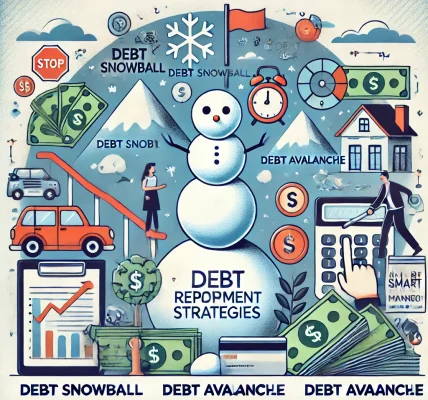Managing multiple debts can be overwhelming. If you’re struggling to keep up with multiple credit card bills, student loans, or other financial obligations, you may be considering a debt consolidation loan or a personal loan. Both options can help simplify your finances and reduce interest payments, but choosing the right one depends on your financial situation.
This guide will help you understand the key differences between debt consolidation loans and personal loans, their advantages and disadvantages, and how to choose the best option for your needs.
1. What Is a Debt Consolidation Loan?
A debt consolidation loan is a specific type of loan designed to combine multiple debts into a single loan with a lower interest rate. The goal is to make it easier to manage your debt and reduce the total amount of interest paid over time.
How It Works:
- You take out a new loan equal to the total amount of your existing debts.
- The funds from the new loan are used to pay off your current debts.
- You make a single monthly payment on the new loan, ideally at a lower interest rate.
Pros of Debt Consolidation Loans:
✔ Lower interest rates than credit cards and other high-interest debts. ✔ Simplifies your payments into one monthly installment. ✔ May improve your credit score over time if payments are made on time. ✔ Fixed interest rates provide predictable monthly payments.
Cons of Debt Consolidation Loans:
❌ Some lenders require collateral, such as a home or car. ❌ If you don’t qualify for a lower interest rate, it may not save you money. ❌ May come with origination fees and prepayment penalties. ❌ Does not address underlying spending habits that led to debt accumulation.
2. What Is a Personal Loan?
A personal loan is a versatile loan that can be used for various financial needs, including debt repayment, home improvements, or medical expenses. It is usually unsecured, meaning you don’t need to put up collateral.
How It Works:
- You apply for a loan based on your creditworthiness and income.
- If approved, you receive a lump sum amount.
- You can use the funds for any purpose, including debt repayment.
- You repay the loan in fixed monthly installments.
Pros of Personal Loans:
✔ Can be used for multiple financial needs, not just debt consolidation. ✔ Unsecured loans mean you don’t risk losing assets like your home or car. ✔ Fixed interest rates and repayment terms offer predictability. ✔ Typically faster approval and funding compared to debt consolidation loans.
Cons of Personal Loans:
❌ Interest rates can be higher than debt consolidation loans, especially for borrowers with poor credit. ❌ Shorter repayment periods can lead to higher monthly payments. ❌ Some lenders charge origination fees and other costs. ❌ Not specifically designed for debt consolidation, so financial discipline is needed to avoid new debt.
3. Debt Consolidation Loan vs. Personal Loan: Key Differences
| Feature | Debt Consolidation Loan | Personal Loan |
|---|---|---|
| Purpose | Specifically for consolidating multiple debts | Can be used for anything, including debt repayment |
| Collateral | Often required (secured loan) | Usually unsecured |
| Interest Rate | Lower for qualified borrowers | Higher, especially for bad credit borrowers |
| Repayment Terms | Fixed monthly payments | Fixed monthly payments |
| Approval Speed | Longer approval process | Faster approval and disbursement |
| Risk Factor | May lose collateral if unable to repay | No risk to assets but may have high interest rates |
4. Which Option Is Right for You?
Choosing between a debt consolidation loan and a personal loan depends on your financial goals and situation.
Choose a Debt Consolidation Loan if:
✔ You have multiple high-interest debts (credit cards, medical bills, etc.). ✔ You qualify for a lower interest rate than your current debts. ✔ You need a structured repayment plan to manage your debt better. ✔ You have good credit or assets for securing a lower interest rate.
Choose a Personal Loan if:
✔ You need a loan for various purposes, not just debt consolidation. ✔ You prefer an unsecured loan with no risk to your assets. ✔ You need quick access to funds for urgent expenses. ✔ Your credit score is strong enough to secure a favorable rate.
5. How to Apply for These Loans
Regardless of which loan you choose, follow these steps for a successful application:
Step 1: Check Your Credit Score
- Higher credit scores get better interest rates.
- Obtain a free credit report from agencies like Experian, Equifax, or TransUnion.
Step 2: Compare Lenders
- Look at interest rates, repayment terms, and fees.
- Consider banks, credit unions, and online lenders.
Step 3: Gather Required Documents
- Proof of income (pay stubs, tax returns)
- Credit history
- Employment details
- Debt statements (if applying for a debt consolidation loan)
Step 4: Apply and Review Loan Terms
- Submit an application with the necessary documents.
- Carefully review the APR, repayment terms, and any hidden fees.
Step 5: Use Funds Responsibly
- If consolidating debt, use the loan to pay off high-interest debt immediately.
- Avoid accumulating new debt to prevent further financial strain.
6. Alternative Debt Management Strategies
If you’re unsure about taking on a new loan, consider these alternative debt relief options:
a. Credit Counseling Services
- Work with nonprofit organizations that provide free financial advice.
b. Debt Management Plans (DMPs)
- A structured repayment plan negotiated by credit counselors.
c. Balance Transfer Credit Cards
- Transfer high-interest debt to a 0% APR credit card (beware of fees).
d. Budgeting and Expense Reduction
- Track expenses and cut unnecessary costs to free up money for debt repayment.
7. Final Thoughts: Making the Best Choice
Both debt consolidation loans and personal loans can be valuable financial tools if used correctly. The best option depends on your financial situation, credit score, and long-term goals. ✔ Debt Consolidation Loan is ideal if you have multiple debts and want structured repayment with lower interest. ✔ Personal Loan is best if you need flexibility and don’t want to use collateral. ✔ Always compare lenders, read the fine print, and have a clear repayment strategy to avoid falling deeper into debt.




